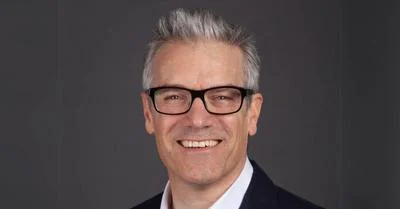The publication is reproduced in full below:
By Mr. CARDIN (for himself and Mr. Young):
S. 53. A bill to identify and combat corruption in countries, to establish a tiered list of countries with respect to levels of corruption by their governments and their efforts to combat such corruption, and to evaluate whether foreign persons engaged in significant corruption should be specially designated nationals under the Global Magnitsky Human Rights Accountability Act; to the Committee on Foreign Relations.
Mr. CARDIN. Madam President, President Biden, on June 3, 2021, issued a memorandum on ``Establishing the Fight Against Corruption as a Core United States National Security Interest.'' I want to quote from the President when he issued that memorandum. President Biden said:
Corruption threatens United States national security, economic equity, global anti-poverty and development efforts, and democracy itself. . . . [B]y effectively preventing and countering corruption and demonstrating the advantages of transparent and accountable governance, we can secure a critical advantage for the United States and other democracies.
Corruption is a national security core interest. Corruption is the source of Mr. Putin's resources that he uses for his international activities, including the war in Ukraine and to try to bring down democratic states.
Today, the Atlantic Council is releasing a report--the report titled
``Why the kleptocrats still win: A strategy for the United States and Europe to address weaponized corruption.'' The report points out how the kleptocrats hide their wealth in Western countries because they believe it is safer in Western countries to hide their wealth. And the report points out the need for us to coordinate efforts between the United States and Europe.
Today, I am filing legislation, the Combating Global Corruption Act. I am joined by my friend Senator Todd Young of Indiana--bipartisan legislation--to deal with the U.S. leadership in fighting global corruption. It will give the State Department and the United States an important tool. It will give the United States leadership in showing the international community the steps that need to be taken in order to counter corruption. It would require the State Department to publish a list of countries in three tiers, the highest tier being those countries that are taking the steps necessary to fight corruption; the bottom tier would be those countries that are not making the required effort to deal with corruption in their country.
The State Department will be using internationally established standards for fighting corruption that the international community has already signed off on as being the proper way to fight corruption in your particular state.
For example, it references the Inter-American Convention Against Corruption, the Organization of American States--the OAS--that was passed in 1996: acknowledged procedures in our hemisphere to deal with corruption. It references the Convention on Combating Bribery of Foreign Public Officials, international business transactions of the Organization of Economic Cooperation and Development--the OECD--which was adopted in 1997.
It references the United Nations Convention against Transnational Organized Crime that was agreed to in 2000 and the United Nations Convention against Corruption, which was agreed to in 2003.
These guidelines already exist and allow the United States to use those guidelines that have already been established by the global community to judge how every state is meeting their commitment to fight corruption.
Countries that are not meeting their commitment, we put a spotlight on them. That spotlight encourages them to do more. It points out ways in which they can take action to fight corruption in their own country.
Now, this is not a new strategy that we just came up with that we start giving a report on all countries on how well they are doing in fighting corruption. It is not a new concept. We have done that successfully in several other areas. One that we should take great pride in this institution--because we were ones who established this--
is the Trafficking in Persons requirements.
Today, the United States files a report on every country as to how well they are meeting their international responsibilities to protect the modern victims of slavery, trafficking in persons. It has been bipartisan. It has been very effective.
Secretary of State Blinken said, in releasing the report of this year, on July 19, 2022, he said:
Today we're releasing the 2022 Trafficking in Persons Report. It assesses how 188 countries and territories, including the United States, are performing in terms of preventing trafficking, protecting victims, prosecuting traffickers. That makes this one of the most comprehensive sources of information anywhere on anti-trafficking efforts by government--what works, what doesn't, and how we can continue to do better.
We do that in preventing trafficking. We can do that in stopping corruption.
We have a country report on human rights. Again, I will quote from Secretary of State Blinken when he released this report on April 2, 2022. This is a report that judges all countries on how well they are dealing with human rights. Secretary Blinken said, in releasing that report on April 2 of last year:
For nearly five decades, the United States has issued the Country Reports on Human Rights Practices, which strive to provide a factual and objective record on the status of human rights worldwide--in 2021, covering 198 countries and territories. The information contained in these reports could not be more vital or urgent given ongoing human rights abuses and violations in many countries, continued democratic backsliding on several continents, and creeping authoritarianism that threatens both human rights and democracy--most notably, at present, with Russia's unprovoked attack on Ukraine.
[A]nd using resources like the Country Reports on Human Rights Practices, we can come closer to building a world where respect for human rights is truly universal.
That human rights report works. Putting a spotlight on what countries need to do brings about change. It promotes a core value in the United States, respect for human rights and good governance. We do that here in the United States to show global leadership.
I will mention one other report that is issued by our State Department, one on international religious freedom. Again, this was bipartisan. So on June 2 of last year, Secretary Blinken said, when he released the International Religious Freedom Report:
This report offers a thorough, fact-based review of the state of religious freedom in nearly 200 countries and territories around the world. We produced this document every year since 1998. . . . Now, more than two decades later, we have more than 35 governments and multilateral organizations that have created offices that are dedicated to this goal.
This year's report includes several countries where we see notable progress thanks to the work of governments, civil society organizations, and citizens. For example, last year, the Kingdom of Morocco launched an initiative to renovate Jewish heritage sites like synagogues and cemeteries, and to include Jewish history in the Moroccan public school curriculum. . . . [T]his report is about spreading that kind of progress to more parts of the world. .
. . Unfortunately, the report also shows that we have more work to do.
There is value in what we do in showing the international community what works, what doesn't work, what countries are doing to make progress, whether it is on trafficking, whether it is on human rights, whether it is on religious freedom. And we need to do the same on fighting corruption. We had the model that works. And the legislation that Senator Young and I have introduced today allows us to provide such a report in fighting corruption.
The legislation also gives the Secretary of State some additional tools that could be helpful. The bill directs the Secretary of State and Treasury to evaluate whether there are foreign persons engaged in significant corruption for the purposes of potential imposition of sanctions under the Global Magnitsky Human Rights Accountability Act in the countries listed in tier 3. That is the lowest performing tier.
I mention that because the Magnitsky Sanctions have had a proud history in this Chamber. We initiated the Magnitsky Sanctions originally against Russia because of the torture and death of Sergei Magnitsky. We then made it global for those that are perpetrating gross violations of international human rights.
I introduced the legislation with my partner who was the late Senator McCain. The two of us said we need to include corruption as one of the basic human rights violations that would be eligible for individual sanctions. And we did.
In the last Congress, we made the Global Magnitsky Sanctions permanent. And I was proud that we were able to do that in the National Defense Authorization Act. What is unique by these sanctions is that they are individual. They are not against the country. They are personal to the individual who violates the basic rights.
And what does it do? It prevents them from getting a visa to come to America because they like to visit their wealth that is here in our country. And it prevents them from using our banking system. It works.
It was reportedly the first issue between Mr. Putin and President Trump in their first bilateral summit meeting. Mr. Putin was upset about these sanctions. Good. I am glad that he is.
This legislation that Senator Young and I have introduced allows us to look at whether we should be using these individual sanctions--these Magnitsky Sanctions--against the perpetrators of corruption who have not been held accountable in their own country.
There is lot to be said about why this legislation is so important. So I would like to just conclude by pointing out the bill that we introduced today is nearly identical to the bill that we introduced in the last Congress. It was reported out on a bipartisan basis by the Senate Foreign Relations Committee.
I want to thank Senator Menendez for his help and Senator Risch for his help. This is not a partisan bill. This is a bipartisan bill to promote an American value and a national security concern and that is making sure that America leads in fighting corruption so we do not have the resources going into a country like Russia, where Mr. Putin uses it to try to bring down our system of government.
I urge my colleagues to join me and Senator Young in this effort. I hope that we are able to pass this bill quickly in the U.S. Senate.
We came close to doing it in the last Congress. We can get it passed in the House and signed by the President. I think we will look back at this day when that report comes out and say that we were able to accomplish concrete improvements in making this world a better place, in promoting American values, that this report will make a difference.
____________________
SOURCE: Congressional Record Vol. 169, No. 15
The Congressional Record is a unique source of public documentation. It started in 1873, documenting nearly all the major and minor policies being discussed and debated.
Senators' salaries are historically higher than the median US income.






 Alerts Sign-up
Alerts Sign-up